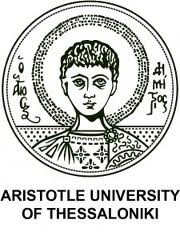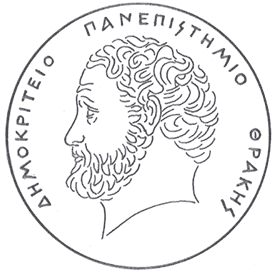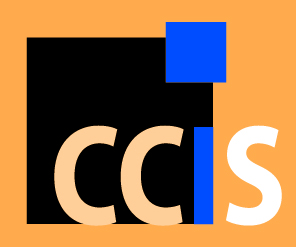1st Workshop on Innovative European Policies and Applied Measures for Developing Smart Cities
1st Workshop on Innovative European Policies and Applied Measures for Developing Smart Cities (IPMSC 2013)
In conjunction with the 14th EANN International Conference on Engineering Applications on Neural Networks - EANN 2013 (September 13-16, 2013 – Chalkidiki, Greece) http://delab.csd.auth.gr/eann2013/
Important Dates
Paper submission: May 1, 2013
Notification of acceptance/rejection: May 19, 2013
Camera-ready submission: May 29, 2013
Early registration: June 05, 2013
Program Chairs
Dr. Ioannis P. Chochliouros
Research Programs Section
Hellenic Telecommunications Organization (OTE) S.A, Greece
Tel.: +30 210 6114651
e-mail: ichochliouros@oteresearch.gr
Prof. Stefanos Kollias
Image Video & Multimedia Laboratory, National Technical University of Athens
Tel.: +30-210-7722488
e-mail: stefanos@cs.ntua.gr
Prof. Nancy Alonistioti
Department of Informatics & Telecommunication
National & Kapodistrian University of Athens (NKUA)
Greece
Tel.: +30-210-7275216
e-mail: nancy@di.uoa.gr
Dr. Ioannis M. Stephanakis
Hellenic Telecommunications Organization (OTE) S.A, Greece
Tel.: +30 210 6115798
e-mail: stephan@ote.gr
Workshop Program Committee (not complete)
- Prof. Vishanth Weerakkody, Brunel University, UK
- Dr.Latif Ladid, Université du Luxembourg, President of IPv6 Forum
- Prof. George C. Anastassopoulos, Democritus University of Thrace, Greece
- Dr. Rod McCall, Université du Luxembourg, Luxembourg
- Mr. Donal Morris, CEO, RedZinc Services Ltd., Dublin, Ireland
- Dr. Vassilis Tzouvaras, National Technical University of Athens, Greece
- Dr. Nasos Drosopoulos, National Technical University of Athens, Greece
- Mr. Evangelos Sfakianakis, Research Programs Section OTE, Greece
- Dr. George Caridakis, National Technical University of Athens, Greece
- Dr. Kelly Georgiadou, Research Programs Section OTE, Greece
- Mr. Luis Cordeiro, OneSource, Consultoria Informatica, LDA, Portugal
- Mr. Konstantinos Ioannidis, Lawyer, Mayor of the Vrilissia Municipality, Greece
The Workshop has been established to disseminate knowledge obtained from EU projects and funded research in the area of Smart Cities as well as original technical reports/deliverables from related pilots and intelligent telecom applications such as the LiveCity Project (Grant Agreement No.297291) and the Social&Smart Project (Grant Agreement No.317947). Other similar projects from the same thematic category are expected to join the current workshop. Papers from industry and academia covering EU policies regarding smart cities in the following areas are encouraged:
- European Union policies and regulatory issues, business aspects and related market practices
Economics for Next-Generation-Networks; business trends; cost models and service pricing; access regulation and migration strategies; regulatory challenges and assessment of related applied legal measures; strategic challenges and current European initiatives for research and innovation in the context of smart cities; experimental results from specific research platforms and of related pilots (i.e.: Living Labs); societal and environmental aspects of proposed corresponding solutions; future plans for new use cases, test beds and local initiatives within the scope of an Internet-based modern society; other Internet-based urban ecosystems
- Smart citiest applications, strategies and business models; application scenarios in the areas of eGovernment, Emergency Services, eHealth, Education and City Experiences; service evaluation and service delivery
Service-Oriented Architecture (SOA); service business models for smart cities and e-government diffusion; service design, service deployment and service delivery; QoS-related aspects; knowledge-intensive services; risk management in services management; specific applications in the areas of Emergency services, eHealth, Education and City Experiences
- Internet of the things, ubiquitous and pervasive services - Applications and interaction for social networking
Future technologies bridging the physical and virtual worlds; Internet-based ecosystems; Internet services and applications, home area networks, smart home, personal area networks; impacts on the security, privacy and risks on the physical world
- AI applications and agents in telecommunications
Service-oriented agent-based architectures, protocols and deployment environments; multi-agent planning uses; swarm intelligence and ant colony optimization models
- Cloud computing, grid computing and virtualization
Architectures, resource management and protocols, M2M (machine-to-machine) interaction/SDNs and cloud telematics, brokering
- Video-to-video and other multimedia-based communications, IPv6 and mobile networks
IPv6 protocol and next generation networks; HEVC and H.264/MPEG-4 AVC; mobile TV, multimedia delivery and LTE/Long Term Evolution; Rate-distortion control in heterogeneous networks; Multipoint-to-Multipoint delivery; interactive advertisement; IPTV and IMS; 3D Internet and 3D TV; immersive multimedia; enhanced and augmented reality; virtualization
Scope
Internet grows into a more “complex” and “sophisticated” entity than it was originally intended to be. It is much more than simply a communication system as it comprises numerous essential parts and components of modern networks, platforms, infrastructures and related (usually modern and innovative) facilities together with multi-generated “content” and a variety of connected equipment and devices. Internet is the essential “core” of our modern world towards creating a real knowledge-based society and a variety of businesses providing numerous challenges for development and growth. New and unexpected applications and services are nowadays emerging from cutting-edge technological developments that “shape” the requirements for future progress and this dynamic evolution makes the entire context of reference more fascinating. Internet’s rapid evolution also influences socio-economic, environmental and cultural aspects of modern society. The Future (Internet-based) Networks aim to enable smart connectivity for all, anywhere, at any time at the highest speed and efficiency fulfilling the overwhelming demands of today’s modern societies.
On the other hand, the rapid urbanization has resulted in migration of people in urban areas and spatial expansion of city infrastructures creating diverse challenges and opportunities as well as several undesirable malaises. Various policies and applied initiatives have been proposed within the framework of modern cities in order to deal with emerging priorities. One of the most promising is the idea of “making cities smarter” for the benefit of all citizens via the implementation of modern Internet-based technologies and applications, with the Internet of the Future being a vital component of any innovative process. Under this consideration, the concept of “Smart Cities” has lately become a critical objective in the framework of urban developmental policies of the European Union (EU), affecting both policy initiatives as well as applied programmes aiming at the creation of more inclusive, sustainable and competitive cities. The EU has devoted constant efforts in order to devise a strategy for achieving urban growth in a “smart” sense for its metropolitan cities. Despite the fact that the first related approaches were focused upon the potential role of the corresponding related -and potentially involved- ICT infrastructures, further research has also identified other important urban growth “drivers”, such as the role of human capital/education, social implications and environmental interest, to mention a few. The role of the Future Internet (FI) as an “enabler” of city services has been well identified as a critical factor for a proper urban development. Cities increasingly assume a critical role as incentives of innovation in diverse areas, including health, culture, social inclusion, security aspects, environment and business. This is expected to expand as more people-citizens and devices-equipment are becoming parts of the Future Internet.
Cities and urban spaces are anticipated to evolve into smarter frameworks and to be better connected, exploiting the Future Internet in order to organise, optimise, and provide facilities to citizens. Future Internet will transform the public sector, citizens’ lives and business and focus on content, things and people themselves. New thinking is needed which will go beyond individual cities and particular domains of concern in order to deal with the actual problems facing our cities. Achieving planned and sustainable innovation for our future society and making future cities a good place to live and work requires broader, more collaborative and innovative approaches. Up today, user-driven open innovation methodologies have confirmed that they can radically advance the effectiveness of the modernization process by combining R&D aspects with real market requirements. The concept of “Living Labs” is a particular example of such open innovation environments in real-life settings, in which user-driven innovation is fully integrated within the co-creation process of new services, products and societal infrastructures. Under the consideration of existing user-driven innovative processes in Europe, the actual challenge is to realize a broader implementation of open platforms for the development and the offering of Internet-enabled services in the cities, with the inclusion of as many citizens as possible. These actions will lead to “innovative Internet-based ecosystems” and will support the transition towards “smarter cities” by providing opportunities for innovative facilities and services.
Furthermore, physical and computational network infrastructures allow pervasive technologies (like the Internet of Things-IoT) to inject intelligence into domestic environments. Social networks can be incorporated into middleware islands virtually located in a variety of domestic units. Dynamic and adaptive (user and context aware) procedures lead to a networked intelligence (NI) notion and provide the basis for the fusion and merging of Internet of Things with Internet of People forming, thus, a Future Internet ecosystem. User’s social activity, knowledge and intelligent services and systems are incorporated into this Future Internet ecosystem.
The general objectives of the proposed Workshop are:
- To set-up and expand a knowledge exchange between cities, Living Labs and the research community regarding recent developments and future plans for new use cases, test beds and local initiatives within the scope of an internet-based modern society.
- To assess, analyze and discuss several issues that have been addressed by cities that intend to get smarter and develop more intelligent environments in a variety of thematic areas. This may take into account progress, experiences, results and/or any measures that have been applied -or are to be applied- under specific R&D contexts as well in order to promote the inclusion of Internet-based facilities in cities.
- To discuss business trends (including business process improvements and industrial applications), regulatory challenges and societal contexts (for example social and environmental applications) rising from existing applied initiatives or specific projects in the framework of smart cities.
- To deal with the proper utilization of networked infrastructure in cities, based upon existing policies for improving economic and political efficiency and enabling social, cultural and urban development. To discuss activities for the establishment and operation of appropriate future networks in cities, with these networks being able to support convergence and interoperability of heterogeneous (mobile, wired and wireless) broadband network technologies, including notably novel Internet architectures.
- To assess the development of smart, open experimental platforms for the enhancement of quality-of-experience in urban living in terms of involvement of citizens, inclusion, sustainable lifestyles, living environment, home/spaces, entertainment etc. The emerging requirements of smart sustainable cities and of related industrial applications in addition to ICT support for innovation, jobs and growing of businesses are to be addressed as well.
- To investigate fusion and merging of Internet of Things with Internet of People, forming a Future Internet ecosystem.
- Applications of shared knowledge and intelligence into the Future Internet ecosystem.
- Experimentation paradigms of on FIRE facilities hosted by EU projects (e.g: Crew, OpenLab and SmartSantander).
- Stimulate discussion on pervasive Future Internet networks and especially in evaluating the current status and identifying ongoing attempts and future directions.
- To present and/or to display some preliminary examples of Future Internet in the context of Smart Cities’ requirements.
- To support the deployment of interoperable infrastructures exploiting new trends on Future Internet and open data for the creation of context-aware services and applications of relevance to citizens in various areas (such as, for example, directing and informing large crowds, emergency and crisis management, smart mobility, energy efficiency, etc.).
- To discuss visions and perspectives in the context of Smart Cities of the future and how these might be put into best practice.
Submission
Papers should be submitted through the conference site (https://www.easychair.org/conferences/?conf=ipmsc2013) either in a [.doc] or in a [.pdf] file and they will be peer reviewed by at least 2 academic referees (an EasyChair account is required). They should not exceed 10 pages formatted according to the well known LNCS Springer style.
Publication:
Accepted papers will be presented orally in the conference for 15-20 minutes approx. and they will be published in the Proceedings of the main event. They will be considered for potential selection for publication in the Special Issues to be edited.




